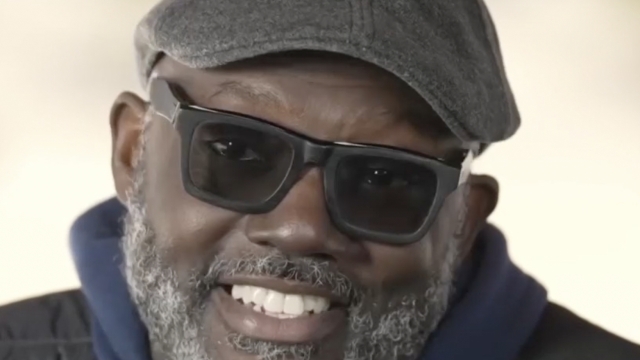Two hundred and thirty hospitals found 14,701 kidney transplant patients were eligible for a transplant sooner than previously determined based on flawed math calculating kidney function.
The average kidney transplant patient waits three to five years for an organ. For Craig Merritt, in late November 2023, he had lived with kidney disease for more than 20 years, was on dialysis, and had been waiting for around four years for a transplant.
"Some days I didn't think I was going to ever get called," he said. "However, I had some other friends in different states who were dealing with the same thing I was dealing with. They were on the list, and they got called. That's where my hope came from, that one day I would receive a kidney transplant."
Merritt received a call on a Friday night just before Thanksgiving from the transplant center in Charleston, where he was on a waiting list for a new kidney. He was told instead of four years, he had gotten credit for eight years of waiting.
His phone call is a result of a policy change about something called the estimated glomerular filtration rate, or eGFR. Doctors use the calculation to determine kidney function.
Kidneys filter out waste through urine. The less healthy a person's kidneys, the more waste goes in the blood and the higher the eGFR. The average eGFR for a healthy 40-year-old is 99, or 99 milliliters per minute. When a patient's eGFR is 20 or less, they're eligible for transplant.
Removed years before by the Organ Procurement and Transplantation Network (OPTN), an old race-based calculation for eGFR would falsely diagnose a Black patient's kidney function, inaccurately showing that someone's kidneys were filtering better than they were. It's even more troubling because experts say high rates of diabetes, obesity, high blood pressure, and heart disease increase the risk of kidney failure in the Black community.
"Many patients, particularly Black Americans, end up with kidney failure being discovered in the emergency room for the first time rather than being prepared for kidney failure over months or years," said Dr. Neil Powe, who is among those who fought and helped develop a more equitable eGFR formula. Also among them is nephrologist Dr. Cynthia Delgado. Both told Scripps News this move was a long time coming.
"Race should not have a role in determining how healthy a kidney patient is," said Delgado.
January 2024 marked the deadline the Organ Procurement and Transplantation Network and the United Network for Organ Sharing (UNOS) gave the 230 U.S. hospitals with kidney transplant programs to complete going back through their waitlists and give Black patients credit for time they were shorted.
It stirred mixed emotions for some who got credit for more time, as well as those who had already received a transplant.
SEE MORE: Researchers testing new bionic kidney for kidney disease patients
"I would have actually been able to start dialysis sooner. And even more importantly, I would have been able to receive my transplant sooner," kidney transplant recipient Charlotte Smith told Scripps in Spring 2023.
"I went from being officially on the list as of Jan. 27, 2023 and they backdated to Dec. 14, 2017," Katherine Anderson of Norristown, Pennsylvania, told Scripps News. "Why? That — that's my question. Why did it have to be the way that it is? I was excited, but then I was confused. Then I was hurt."
"Six years, seven years, eight years of time. It was mind-boggling to me," Dr. Pooja Singh, medical director of kidney and pancreas transplantation at Jefferson Health Nicoletti Kidney Transplant Center told Scripps as she and her staff were going through medical records, on their off-hours to find all the patients they could.
UNOS tells Scripps News 14,701 patients received credit for extra time, with a median of 1.7 years of time, and 2,470 patients have received a kidney transplant after they got credit for more time because of the prior bad math.
Merritt recalls after his phone call, he anticipated it would still be time before he'd get a kidney match. He says his faith and family had gotten him through thus far, and just planned on continuing to wait after that Friday November call.
"I had dialysis treatment that Friday. And I was taking a nap and received a call about the eight years being doubled. I was awakened by that call. So, when we hung up, I said, okay, great, fine. One day they'll give me a call, " he said. "That Sunday evening, I received the call for a kidney transplant. And that was just amazing. That was amazing. It changed my life."
UNOS expects the number of Black kidney transplant patients getting credit for more time to continue to go up, as more kidney disease patients become eligible for transplant. Race is still a factor in kidney transplant donation. and advocates are now fighting for another OPTN policy change.
"There's a donor risk equation [called KDPI]. And unfortunately, yet again if you were a Black donor, your kidney was, regardless of what the other characteristics of your kidneys were — your kidney was in a way devalued because you got extra points, " Dr. Sylvia Rosa, president of the National Kidney Foundation explained, adding there's a far way to go.
"We have about 15% of the U.S. population that is African Americans. When you go to a dialysis unit, 40% of the people that are there are African Americans. Hispanics are also twice as likely to end up in kidney failure."
UNOS says there is currently a proposal out for public comment to remove race from KDPI. The OPTN Board of Directors can vote on a policy change at their next in-person meeting, which usually is in early June.



